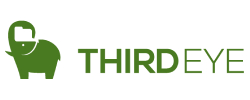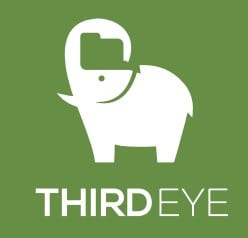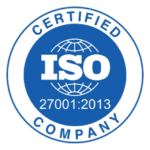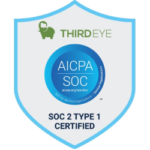
Knowledge Repository AI Agent for an IT Company
ThirdEye Data successfully developed and deployed an AI-powered knowledge repository chatbot application designed to transform how IT professionals access and interact with organizational knowledge. Leveraging the company’s existing sales and project documents, this intelligent solution uses advanced natural language processing (NLP), metadata tagging, and real-time search capabilities to provide instant, context-aware responses, enabling faster decision-making and streamlined operations.
THE CUSTOMER
BUSINESS GOALS OR CHALLENGES
Business Goals or Challenges
- Faster Access to Knowledge: Enable employees to quickly find accurate information from internal documents using natural language queries.
- Operational Efficiency: Reduce time spent manually searching through files, decks, and reports spread across different repositories.
- Improved Knowledge Utilization: Leverage past work (e.g., proposals, case studies) to improve quality and consistency in ongoing sales and delivery efforts.
- Scalable Knowledge Management: Establish a sustainable, AI-driven system that can grow alongside organizational knowledge assets.
Understanding the Challenges:
- Document Sprawl: Thousands of documents in varied formats, stored across disconnected repositories, were difficult to access or even locate.
- Manual Search Limitations: Traditional keyword-based search failed to provide relevant, contextual answers aligned with user intent.
- Metadata Gaps: A lack of standardized metadata across documents made it harder to classify and retrieve information effectively.
- Real-time Updates: Ensuring that newly created or modified documents are indexed promptly for timely access was a persistent challenge.
- Data Governance: Maintaining structured access and ensuring data privacy and version control across sensitive internal content.
Prerequisites and Preconditions:
- Existing Knowledge Assets: Access to the company’s historical and active document sets, including sales and project documentation.
- Dataverse Integration: Real-time connectivity to the Microsoft Dataverse environment to support continuous indexing of documents.
- Azure Cloud Environment: Utilization of the Azure tech stack for secure deployment, data processing, and AI model integration.
- Metadata Framework: A flexible tagging mechanism to auto-classify documents based on content, source, type, and relevance.
- Security Protocols: Role-based access control and adherence to enterprise-grade data protection standards.
THE SOLUTION
ThirdEye Data delivered an intelligent, AI-powered knowledge repository chatbot application tailored for the IT services domain. This solution integrates seamlessly with the customer’s internal infrastructure and document storage systems to provide natural language query capabilities across indexed content.
The Solutions Provided in Detail:
-
Centralized Knowledge Repository: Consolidated access to organizational knowledge by indexing and storing sales and project documents within a unified platform.
-
AI-Powered Chatbot Interface: Developed a conversational AI agent that allows users to ask questions in natural language and receive accurate, context-aware answers.
-
Metadata Auto-tagging: Implemented automated metadata extraction and tagging to improve document classification, searchability, and retrieval precision.
-
Bulk Search Capabilities: Enabled bulk document search across all indexed files, with relevance scoring and filtering for faster navigation.
-
Real-Time Indexing via Dataverse: Established a near real-time connection with the Dataverse to ensure newly published documents are indexed instantly in the repository.
-
Scalable Architecture on Azure: The solution leverages the Azure tech stack—including Azure Cognitive Search, Azure Functions, Azure OpenAI, and Azure Blob Storage—for scalable performance, security, and reliability.
VALUE CREATED
The AI-powered knowledge repository chatbot revolutionized the way internal teams access and apply organizational knowledge, resulting in measurable productivity gains and enhanced knowledge reuse:
- Reduced Search Time: Employees significantly reduced the time spent looking for documents and answers, enabling faster task completion and improved focus on core activities.
- Improved Knowledge Reuse: Sales and delivery teams leveraged past case studies, proposals, and project documents more effectively, increasing proposal quality and response speed.
- Enhanced Collaboration: Centralized knowledge access enabled cross-functional teams to align better and avoid duplication of efforts.
- Operational Efficiency: Automation of metadata tagging and document indexing streamlined document management processes, reducing manual overhead and error rates.






